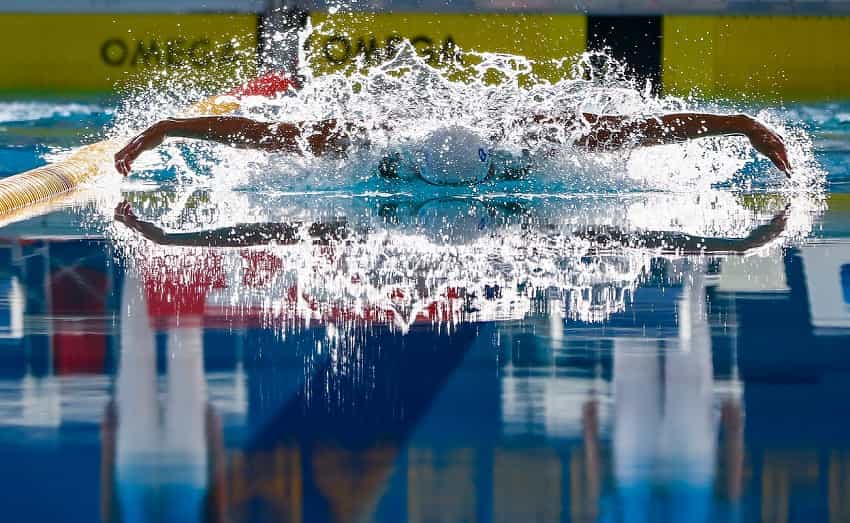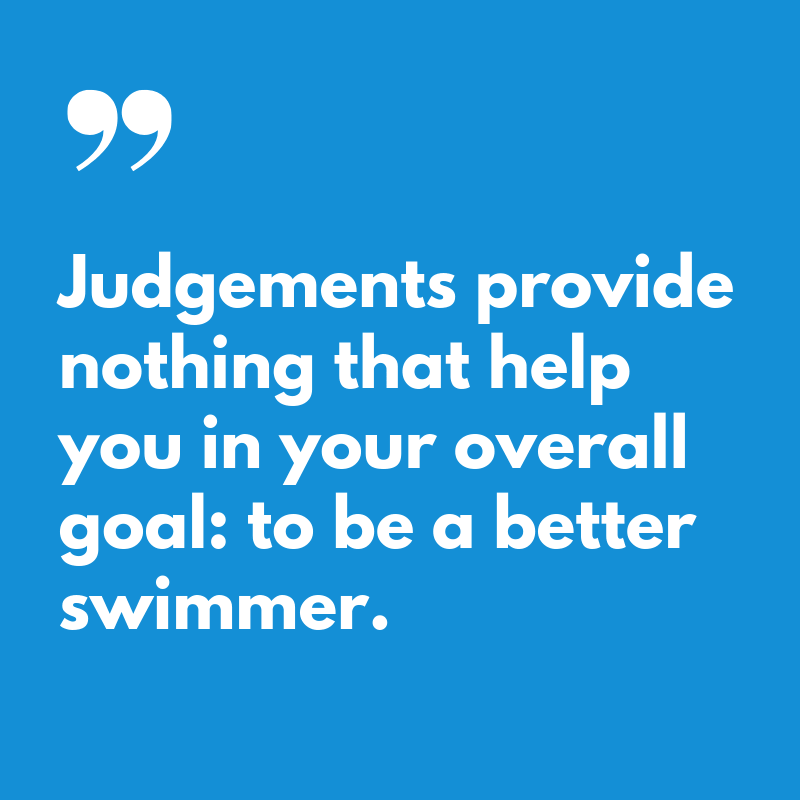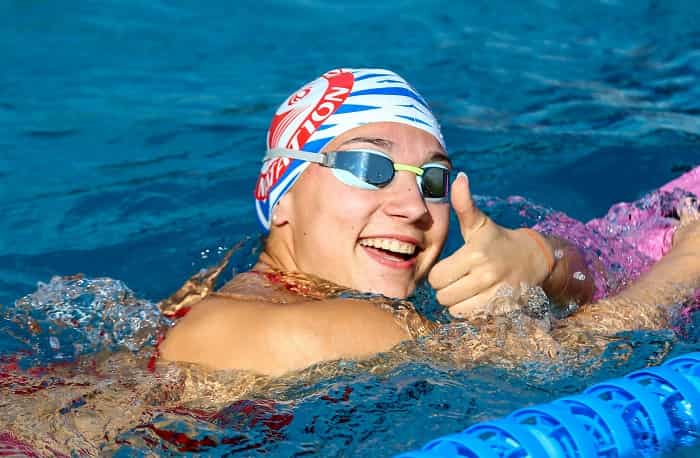Bad races and bad swim practices can be a real pain-in-the-pull-buoys.
You know the song and dance.
- Went to practice.
- Tried to get going, but couldn’t get out of second gear, putting up garbage results.
- Missed some “easy” intervals I usually nail.
- Stroke felt the absolute worst.
- Pretty sure I’ve somehow gotten slower.
- Left the pool feeling like a wet towel.
Bad swims, whether in practice or in competition, happen.
(Doesn’t make them any less infuriating.)
The good news is that no one swims perfectly all the time. Caeleb Dressel has bad practices. Katie Ledecky has her off days. I have my off days, and so do you. It means you are a normal humanoid-person.
Elite swimmers have a way of responding to those lousy swims that is far more productive than the rest.
And it starts with the way you respond to that stinky-butt of a swim.
The staggering lack of utility with judgements
When things go sideways on us in the pool, we rush to judgement. The emotions are running high—frustration, anger, sadness, disappointment—and in these moments we start pumping out critical and emotionally-laden judgements like crazy.
I suck, I’m no good at this, I’ll never be a fast swimmer, I’m the worst, Little Bobby is so much better than me.
These judgements are emotional. Contain little objectivity. And as I really hope you are guessing—wildly unhelpful.
After all, take a step back for a hot second and look at those statements. In the calm, objective state that you are in right now, read them aloud and think about what these judgements provide.
What can they tell you about your swimming?
Little, if anything.
They don’t tell you anything about your effort. They don’t better inform your preparation. And they don’t give you anything that you can use that serve the ultimate purpose you have when you trample over a mesh bag full of gear to get into a cold pool at 5:20 in the morning—which is to be a better swimmer.
Just a quick, judgmental you-suck and away we go.
Evaluations vs Judgments
I get the rush to judgement with, uh, judgements after a lousy performance.
You feel frustrated, bummed out, angry—and getting emotional is normal and part of the whole being a charter member of the humanoid club.
But if you give yourself a few moments to catch your breath and emotionally step away from what just happened, there is a golden opportunity that is just itching—like both arms waving frantically from the front row of the class cause look-man-I-gotta-go—to get your attention.
Let’s say you had a bad race.
Felt sloppy, stroke was off, the competition dusted you off the start, and the time on the clock was about as awful as how your stroke felt.
Now, you could focus on those familiar and classic emotional judgements (I stink at this sport, I will never get faster), or you could strap on the white lab coat, makes those Pyrex tubes clink together, and evaluate your way to some serious opportunities for improvement.
When looking at the race, you find some obvious weak links:
- My breakout was a little sloppier than usual;
- My legs died pretty hard on the last 50;
- And I didn’t feel properly warmed up…
From here, you have some killer opportunities to be a better swimmer:
- You decide to make focusing your breakouts in training a priority. You do this by rating how awesome your breakouts are each day at practice on a scale of 1 to KA-BOOM.
- You decide to spend an extra ten minutes each day after workout doing vertical kick with DragSox to strengthen your legs.
- And you sit down with your coach to put together a smarter warm-up plan that you both know will get you in the mood for high-performance swimming.
Nice.
This is a hypothetical you and I are talking about, but even I am feeling that double-shot of motivation and confidence!
This quick little evaluation does what those judgements could never even fathom doing. It provided you with clear and tangible ways to improve, a specific plan to chase after them, and as a bonus, you get to use the rage-fuel and disappointment from that lousy swim to aggressively get after them.
Super whammy.
Suddenly, just maybe having a weak-sauce swim practice or a misstep in competition doesn’t seem like the end of the world. Your confidence and motivation aren’t going to get jack-hammered to smithereens because you know that a disappointing swim is just another opportunity to unlock the next level of your performance.
Maybe you don’t suck, after all.
Evaluations give you somewhere to go with your swimming, while judgements keep you stuck in place.
The momentum you can build over the course of a season from correcting course and building on your mistakes is hard to overstate.
You will never want for motivation and purpose, because there will always be things you can improve upon.
Regular evaluations after bad swims—and good ones, no such thing as a perfect swim, after all—gives you a path forward without limit. A path that is in your control (which gives you ownership of your swimming and boosts confidence).
Those pesky judgements are always vague, overly harsh, and paint you into a corner where you can only feel more unmotivated.
I suck. I’m not as fast as my teammates. I’ll never be good enough.
This stuff gives you literally nothing to be a better swimmer.
Nothing to focus on tomorrow at the pool.
Nothing to use as fuel.
Better to focus on doing a quick evaluation of your swim and sending your focus and energy in that direction.
To be clear, I’m not saying that the emotion of competition and training will evaporate when you start evaluating yourself this way. Far from it. Emotion is always the first on the scene when you are in the water, and this will never change.
Once you have had some time to decompress from a frustrating practice or bad swim, and the emotion of the moment dissipates, take a step back from your performance and evaluate it.
Seek your coach’s feedback to get clarity on what you can do to improve.
Take a couple lessons from the swim, add them to your process, and move forward and upward with your swimming.
More Stuff Like This:
A Simple Way to Calm Pre-Race Anxiety for Swimmers. We all experience varying amounts of anxiety before big races. Here’s a simple tool to help calm and center yourself when it matters most.
This Mental Training Workbook Will Help You Swim Like a Rock Star This Season. Confused about mental training? Want to unleash pro mode on your swimming this year? Learn how this mental training workbook will change your mindset and help you pummel your PB’s this season.
















